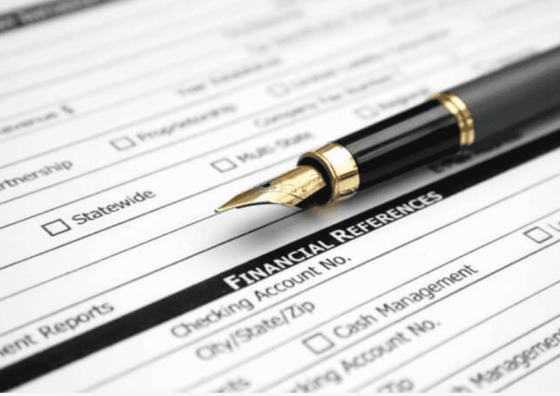If you have a credit card, chances are you’re paying more in interest than you need to. In this concise guide, we’ll show you how to avoid interest on a credit card and keep more of your hard-earned money in your pocket.
Keep reading for our tips.
How Does Interest Work on a Credit Card
Credit card companies make money by charging interest on the balance you carry from one month to the next. For all credit cards, the average APR currently stands at 15.13%.
Let’s say you have a balance of $1,000 on your credit card with an APR of 14%. Each year, you’ll owe $140 in interest. To make matters worse, credit card companies often compound interest daily, and the higher your balance, the higher your interest will be.
Additionally, this means that you’ll be charged interest not only on your original balance but also on the already accrued interest.
How to Calculate Credit Card Interest
To calculate your credit card’s daily periodic rate, divide your interest rate by 365. For example, if your APR is 15%, you’d first need to convert the APR into decimals. So the math would be: (15/100) / 365 = 0.0004. This means that your daily rate is 0.0004%.
The next step would be to figure out how much interest will be added to your balance by multiplying your daily periodic rate by the number of days in your billing period. That number should then be multiplied by your average daily balance.
Let’s say your billing period is 31 days long and your average daily balance is $1,000. The interest charged on your balance would be $12.73.
0.0004% x 31 days x $1,000 = $12.73
Of course, you can always use an online credit card interest charge calculator if math isn’t your forte.
How Not to Pay Interest on a Credit Card
Here are a few simple tips on how to avoid paying interest on your credit card:
Tip #01: Pay Off Your Balance in Full Each Month
Paying your balance in full is the best way to avoid interest on your credit card. This way, you’re essentially paying yourself back for the money you’ve spent, with no added interest charge. Consequently, more of your money stays in your pocket, where it belongs.
Tip #02: Consolidate Debt With a Balance Transfer Credit Card
If you have debt on multiple credit cards, it can be helpful to consolidate your debt using a balance transfer credit card. It’s a common solution people resort to so they can avoid credit card interest payments.
Additionally, many balance transfer credit cards offer 0% APR for a set period, which is usually 12–18 months, meaning that you won’t have to pay any interest on your balance during that time. For example, if you owe $5,000 on a credit card that charges a 15% APR and you pay off your debt within 18 months, you’ll save $465.
While balance transfer credit cards will help you avoid paying an interest charge on a credit card, there are a few things to consider when it comes to these cards:
- To be eligible for balance transfer credit cards, you must have an excellent or good credit score, which is 690 or higher.
- These credit cards come with a high transfer fee: 3%–5% of the amount transferred.
- When the 0% APR promotion ends, the new interest rate will be imposed.
Tip #03: Know Your Interest-Free Period
How to avoid credit card interest? Simply put, know your interest-free period during which you can carry a balance on your credit card without being charged interest. Though it typically lasts 18–55 days, it can vary depending on your credit card.
For instance, if you make a purchase on March 17 and your interest-free period lasts 25 days, you won’t be charged interest on that purchase until April 11.
It’s important to keep an eye on when your credit card grace period will end so that you can make it a priority to pay off your balance before that date. Otherwise, you’ll be charged interest on your outstanding balance as of the end date of your billing cycle.
Tip #04: Plan Your Expenses
If you’re planning a large purchase in the near future, it can be helpful to work out your expenses so that you can pay off the balance before interest is charged.
Let’s say you’re planning to buy a new TV for $1,000. You could make small payments each month until the TV is paid off. Or, you could do that but then make a larger payment at the end of the interest-free period to avoid paying interest.
When Are You Charged Interest on a Credit Card?
The date you are charged interest on your credit card depends on the credit card issuer, but it typically starts with the date of the transaction. For example, if you make a purchase on March 15 and your interest-free period lasts 25 days, you won’t be charged interest on that purchase until April 9.
Conclusion
So there you have it — our four credit card tips to help you avoid credit card interest. If you follow these simple steps, keeping your finances in check will be a piece of cake. As a result, you’ll be able to enjoy the benefits of using a credit card without accruing any extra costs.
If you’re being charged interest on your credit card, it’s likely because you’re carrying a balance on that card. You may also want to check your credit card statement to see if there are any other fees that you’re being charged as well. Yes, you can avoid paying interest on your credit card by paying off your balance in full each month. You can also avoid paying interest on your credit card balance by using interest-free periods and 0% intro APRs. Finally, if you want to know how to avoid interest on a credit card, a good idea is to plan all of your expenses well ahead of time. That way, you’ll be able to save on interest and any other fees that might add up when you’re using credit cards.FAQs
Why do I keep getting charged interest on my credit card?
Can you avoid paying interest on a credit card?






